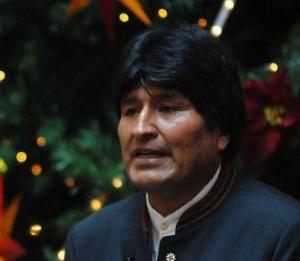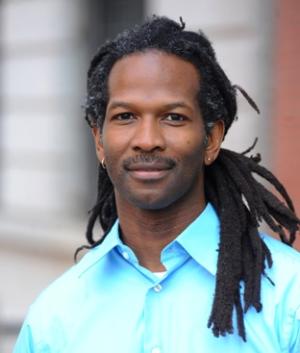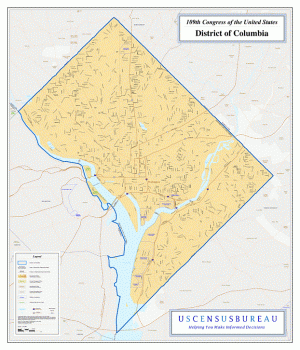As attitudes in America begin to shift in favor of marijuana legalization, it increasingly seems possible that more states -- and eventually the entire country -- might follow. What does this mean south of the border, where Mexican cartels make enormous profits by trafficking this illegal commodity?
A marijuana legalization bill has passed the New Hampshire House, but not with enough votes to overcome a promised gubernatorial veto. It still faces more votes in the House and Senate, too.
Alaska marijuana legalization initiative campaigners have handed in 50% more signatures than needed to qualify for the ballot. It's not a done deal yet -- the signatures must be verified by state officials -- but it's looking like Alaska could be the next state to free the weed.
The Washington, DC, city council has advanced a decriminalization bill with a unanimous committee vote. It now heads for the full council.
Action is really picking up as state legislatures get back into session. Meanwhile, the long battle over regulating medical marijuana in California continues.
This week, we have a trio of jail guards gone bad, as well as another cop with a pain pill problem and sticky fingers. That's a bad combination.
Alaska appears poised to vote on marijuana legalization, New York's governor announces a half-step toward medical marijuana, the ACLU fights for our rights on a couple of fronts, and trouble could be coming to the coca fields of Peru. And more.
The marijuana issue continues hot and heavy, one of our favorite authors is nominated for an award, harm reduction bills move in Wisconsin, and the US Sentencing Commission wants to cut drug sentences. And more.
Marijuana legalization is one step closer in the nation's capital, even Georgia Republican legislators are getting on the medical marijuana bandwagon, Syria's civil war is being fueled by speed, and more.
Lots of activity on the marijuana and medical marijuana fronts today, and an academic study casts doubt on the utility of student drug testing.
As the legislative season gets underway, bills are being introduced all over the place -- good, bad, and ugly. And there's trouble in Mexico, there are peace talks in Colombia, and more.
Special to the Chronicle by Bernd Debusmann, Jr., who is currently studying for an MA in International Journalism at City University London. Prior to that, he lived and worked in his native Mexico, most of it as a full-time freelancer for Reuters TV, also contributing to Fox Latino. Earlier he worked as a reporter in New York City and as a freelance producer for the Reuters Latin American Television Desk in Washington DC, during which time he dealt with many drug trafficking stories. During 2010 and 2011 he authored the weekly Mexico Drug War Update published by this newsletter, available in our Mexican Drug War archive section.

Seven tons of Mexican brick weed seized in Arizona (cbp.gov)
On January 1, Colorado made history by becoming the first American state where marijuana can be purchased for recreational purposes, and in which marijuana is regulated from the seed to the actual sale of product. As
attitudes in America begin to shift in favor of outright legalization, it increasingly seems possible that more states -- and eventually the entire country -- might follow. But what does this mean south of the border, where Mexican cartels make enormous profits by trafficking this illegal commodity?
Given the nature of the illegal drug business, arriving at a precise figure is impossible. At times, the Office of National Drug Policy has said that as much as 60% of cartel profits come from the production and sale of marijuana. On the other hand, a 2010 RAND study estimated the percentage to be between 15 and 26 percent. More recently, research by the Mexican Institute of Competiveness released in October 2012 suggests that if only Washington, Colorado and Oregon legalized marijuana, then cartel profits would fall as much as 30 percent.
Another variable which must be taken into account when analyzing the impact of legalization on the cartels is the nature of the organizations themselves. All of Mexico's criminal groups have a range of diverse business interests aside from marijuana, and most are considered poly-drug organizations, which make huge profits from methamphetamine, cocaine and other drugs. Some cartels, including the notorious Zetas, have gone beyond trafficking illicit goods and are now involved in prostitution, migrant smuggling, extortion, human trafficking, counterfeiting and oil theft.
On its own, legalization would not be able to bring an end to the activities of these groups, but -- whatever the actual figure -- legalization would have a definite financial impact. By some accounts, legalization in Colorado kept $5 million from the hands of criminals the first week, much of which, if the US government is to be believed, would have gone to Mexican traffickers.
The most immediate effect in Mexico would likely be felt in areas heavily involved in production, such as Michoacán or the "Golden Triangle" region that straddles Sinaloa, Durango and Chihuahua. Parts of this region are completely dominated by the cartels, who pay farmers to grow marijuana (and poppy, to a lesser extent). If the price of marijuana were to suddenly drop, the cartels that manage the production in that area would experience a significant decline in profits. Mexican analyst Alejandro Hope estimated that the Sinaloa Cartel stands to lose up to half of its profits from legalization in Colorado, Oregon and Washington alone.
Much of the power of cartels in Mexico stems from their ability to corrupt local authorities and buy protection. Whatever the precise figure, any legislation that disrupts the flow of money into cartel coffers benefits the Mexican government by allowing it to focus their resources elsewhere.
back to top
The New Hampshire House Wednesday afternoon approved a bill that would regulate marijuana like alcohol. The measure, House Bill 492, passed on a vote of 170-162.
The bill sponsored by Rep. Steve
Vaillancourt (R-Manchester) with a bipartisan group of four cosponsors, would make the private possession and home growing of limited amounts of marijuana legal for adults 21 and older.
It would also direct the New Hampshire Department of Revenue Administration to license and regulate marijuana retail stores, cultivation facilities, product manufacturing facilities, and testing facilities. As amended by the House, it would enact a wholesale tax of $30 per ounce and a sales tax of 15% per ounce. The House voted down a similar bill 228-89 in 2012.
The bill now goes to the House Ways and Means Committee to review its revenue aspects. However that committee votes, it will return to the House floor for a second vote. If approved again, it then goes to the Senate.
"House members made history today, and they are clearly on the right side of it," said Matt Simon,the New Hampshire-based New England political director for the Marijuana Policy Project, which lobbied in support of the bill. "Marijuana prohibition has been an enormously expensive failure. Most Americans, including 60% of New Hampshire residents, agree that it is time to adopt a more sensible policy."
Unfortunately for marijuana advocates, New Hampshire Gov. Maggie Hassan (D) is not one of them. She said only yesterday that she would veto the bill because it would send the wrong message to kids. To actually achieve marijuana legalization in the Granite State, both the House and the Senate would have to override her veto. The margin of victory in this first House vote isn't enough to do so.
back to top
Alaska appears to be well-placed to become the third state to legalize marijuana after supporters of a proposed marijuana legalization initiative Wednesday handed in 50% more signatures than needed to qualify for the ballot. Some 30,000 valid voter signatures are required to qualify for the ballot; organizers handed in more than 46,000.
Initiative and referendum experts assume that a certain percentage of gathered signatures will be deemed invalid, with a common metric being that 25% to 30% will be thrown out. But even if 30% of the signatures gathered in Alaska were thrown out, that would still have the initiative qualifying by a couple of thousand votes.
Still, it's not official until it's official. State election officials have 60 days to verify the signatures. If it indeed qualifies, it will appear on the state's August 19 election ballot.
The initiative is sponsored by the local group Campaign to Regulate Marijuana, which is working with the national Marijuana Policy Project.
The Act to tax and regulate the production, sale and use of marijuana would allow adults to legally possess up to one ounce of marijuana and six plants (three flowering). Adults would be allowed to possess the harvest of their plants even in excess of one ounce as long as it remains on the premises where it was grown. The measure would also legalize the production, sale, and possession of paraphernalia.
The measure would allow for marijuana retail stores, cultivation facilities, infused product manufacturers, and testing facilities. It charges the Alcoholic Beverage Control Board with regulating marijuana commerce, but gives the legislature the authority to supersede it by creating a Marijuana Control Board. A $50 an ounce wholesale transfer tax would be imposed.
The measure does not change existing state laws banning public consumption, driving while impaired, or allowing employers to restrict marijuana use by workers.
It's an idea whose time has come, said proponents.
"It's not that the initiative would bring marijuana to Alaska," said Bill Parker, a former Department of Corrections deputy commissioner and one of the initiative's sponsors. "Marijuana is already in Alaska. It would legalize, regulate and tax it. It would treat it like alcohol," he told the Anchorage Daily News.
The possession of small amounts of marijuana in the privacy of one's home is already legal in Alaska under the state Supreme Court's interpretation of the state constitution's privacy provisions. But voters have been loath to go further. A broadly-written 2000 legalization initiative got 41% of the vote, and a less expansive 2004 initiative got 44% of the vote.
Times have changed, said Parker.
"I think Alaska and the country are coming to grips with the fact that what we have isn't working," he said.
back to top
A bill that would decriminalize the possession of up to an ounce of marijuana in the nation's capital easily won a key committee vote today, and is expected to pass the full council in a matter of weeks. The bill passed the Judiciary and Public Safety Committee on a 5-0 vote.
The
Simple Possession of Small Quantities of Marijuana Decriminalization Amendment Act of 2013 (Council Bill 20-409) would eliminate criminal penalties and instead subject a person in possession of one ounce or less of marijuana to a civil fine. The legislation was introduced in July 2013 by
Councilmember Tommy Wells (D-Ward 6) with the support of ten out of thirteen council members.
The council was spurred to act at least in part by reports on racial disparities in marijuana arrests from the American Civil Liberties Union and the Washington Lawyers' Committee on Civil Rights and Urban Affairs. The ACLU, for example, found that black District residents were more than eight times more likely to be arrested than white ones, the nation's second highest disparity rate.
"Marijuana possession arrests have disproportionately criminalized African American residents and wasted millions of taxpayer dollars," said Grant Smith, policy manager with the Drug Policy Alliance Office of National Affairs. "This legislation represents a critical first step toward bringing DC law into step with public opinion and common sense."
Even as the District council advances the decriminalization bill, deeper reforms are looming. Local activists filed a marijuana legalization initiative with city officials Friday. The council may also address legalization, but if it doesn't, look for the initiative campaign to pick up steam.
back to top
Action is really picking up as state legislatures get back into session. Meanwhile, the long battle over regulating medical marijuana in California continues. Let's get to it:
AlabamaOn Tuesday, the Alabama legislature began its session with a pre-filed CBD medical marijuana bill. The bill, known as Carly's Law, is named for a Birmingham girl who suffers seizures and would allow for the use of CBD oil for specified medical conditions. It is cosponsored by Reps. Mike Ball (R-Madison), Patricia Todd (D-Birmingham), and Allen Farley (R-McCalla).
California
Last Monday, the city of San Rafael forced a delivery service operating there to shut down. The Caregiver Compassion Group had been quietly doing deliveries since 2011, when it lost its lease in Sausalito, and operated out of a San Rafael office. The city has banned dispensaries since 1997, and a delivery service with an office in the city is apparently close enough for city officials.
Last Thursday, the Los Angeles city attorney said he would step up enforcement against dispensaries operating in violation of Proposition D, which limited the number of dispensaries in the city to 135. City Attorney Mike Feur spoke as his office obtained an injunction against a real estate business that brokered a deal for a medical marijuana dispensary. The city has so far brought 68 criminal cases against unpermitted dispensary operators and property owners.
On Monday, San Jose medical marijuana supporters filed an initiative asking voters to keep dispensaries open in most of the city. City officials have been moving to close down some dispensaries near homes and are preparing to enact sweeping new restrictions on dispensaries. The initiative calls for a minimum of 50 dispensaries, along with the creation of a "cannabis commission" to regulate them. Advocates hope the council simply adopts their measure when it votes on regulations in March, avoiding a ballot box fight. After the city clerk's office approves the ballot title and summary, the Silicon Valley Cannabis Coalition will have until May 16 to gather 20,372 signatures to qualify for the November ballot.
On Tuesday, Butte County supervisors gave initial approval to their tightest cultivation rules yet. Marijuana grows would limited to 50 square feet on parcels of less than 5 acres, 100 square feet on parcels of less than 10 acres, and 150 square feet on parcels greater than 10 acres. The unanimous vote came after more than three hours of testimony in which virtually everyone speaking called for tightening restrictions on growers. The rules face two additional votes, one and the end of this month and one in February.
Also on Tuesday, Lake County supervisors ordered public hearings on regulations for dispensaries and cultivation centers that might open in unincorporated areas of the county. The board directed the Zoning Board of Appeals to conduct the hearings. The board is working from a draft ordinance that would bar medical marijuana operations from doing business near schools, parks, and day care centers, limit signage, and ban edibles.
On Wednesday, the 9th US Circuit Court of Appeals rejected an appeal from dispensaries as well as landlords and customers challenging the federal government's enforcement of federal marijuana laws. The dispensaries had sought injunctions blocking enforcement, but the appeals court shot them down.
Last Wednesday, the East Hartford planning commission award a special-permit application for a dispensary on Pitkin Street. The dispensary, Constitution Care LLC, must still receive approval from the state Department of Consumer Protection, which is expected to grant licenses by next month.
Florida
Last Thursday, a powerful legislator agreed to file a CBD medical marijuana bill after hearing from the families of children who suffer from epileptic seizures. Rep. Matt Gaetz (R-Shalimar), head of the House Criminal Justice Subcommittee, made the vow after the panel heard two hours of testimony from parents who said high-CBD strains helped their children.
On Monday, medical marijuana initiative organizers said they had gathered more than a million signatures. People United for Medical Marijuana needs 683,149 certified signatures to qualify for the November ballot, so they have created a margin of comfort to account for invalid signatures. The campaign must also meet minimum signature numbers in half of the state's 27 congressional districts. The initiative is also before the state Supreme Court, where it has been challenged by Attorney General Pam Bondi (R).
Kentucky
Last Thursday, a House panel held a hearing on medical marijuana. An overflow crowd attended the hearing of the House Health and Welfare Committee where the topic was discussed, even though no particular bill was at issue. But one could be soon. The same day, Sen. Perry Clark (D-Louisville) filed Senate Bill 43, which would legalize medical marijuana.
On Wednesday, the Senate Health and Welfare Committee held a hearing on medical marijuana. The committee chair, Sen. Julie Denton (R-Louisville) said she is only interested in high-CBD cannabis oil. The committee will not vote because it is not addressing a specific bill, even though one such bill, Senate Bill 43, has already been filed.
Minnesota
On Monday, Gov. Mark Dayton (DFL) said he was not ready to allow medical marijuana, but would be open to a study on the issue. "I've said since I ran for office that law enforcement has enough to contend with, and I am not going to support something that has the adamant opposition of law enforcement in Minnesota, and that is still the case," he said."I'd be supportive of funding for an independent, objective study of what other states have done, what have the results been," he said. Then, maybe in 2015, he suggested.
Missouri
On Tuesday, Rep. Rory Ellinger filed a medical marijuana pilot program bill. The University City Democrat introduced House Bill 1324. Click on the link to find it on the legislative web site.
Pennsyvlania
On Tuesday, a bipartisan medical marijuana bill was filed. Sens. Daylin Leach (D-Montgomery) and Mike Folmer (R-Dauphin) introduced Senate Bill 1182, marking the first time such a measure has been introduced with bipartisan support.
Washington
On Tuesday, medical marijuana supporters in the legislature filed a bill to protect patient rights and preserve the state's medical marijuana program by establishing a firm regulatory framework for it. House Bill 2233 would provide a clear mechanism for licensing and regulation of commercial businesses, while also preserving a patient's right to grow their own cannabis, both individually and cooperatively. It would also restore vital provisions passed by the legislature in 2011, but later vetoed by Governor Gregoire (D).
[For extensive information about the medical marijuana debate, presented in a neutral format, visit MedicalMarijuana.ProCon.org.]
back to top
This week, we have a trio of jail guards gone bad, as well as another cop with a pain pill problem and sticky fingers. That's a bad combination. Let's get to it:
In Miami,
a Miami-Dade jail officer was arrested last Friday on charges he smuggled drugs and cell phones into the Miami-Dade County Jail. Officer
Lavar Lewis, 27, also known as "The Love Doctor," went down after a 19-month investigation into persistent smuggling at the jail. At least three other jail guards are under investigation in the ongoing probe. Lewis, a day shift officer since his hire in November 2008, has been suspended since September 2013. He was charged with unlawful compensation and conspiracy to introduce contraband into a jail and was being held Friday night at the Turner Guilford Knight Correctional Center in West Miami-Dade.
In Honolulu, a Halawa prison guard was arrested Monday on charges he was smuggling methamphetamine into the prison. James Sanders III was indicted by a federal grand jury after an FBI investigation. The indictment accuses him of distributing at least five grams on one occasion and at least 50 grams on another. He is charged with two counts each of distributing methamphetamine, conspiring to distribute and possess with intent to distribute methamphetamine, and bribery. He's out on bond already, but forbidden from working in any prison.
In Baltimore, a jail guard was sentenced last Wednesday to 3 ½ years in prison for her role in a vast drug-smuggling operation at the Baltimore City Detention Center. Adrena Rice is one of nine jail guards who have pleaded guilty in the conspiracy. She admitted to smuggling contraband including marijuana and prescription pills into the lock-up. She had copped to one count of racketeering conspiracy.
In Price, Utah, a former Carbon County sheriff's deputy was sentenced Monday to 30 days in jail for stealing drugs out of the evidence room. Christopher Howard Basso, 38, must also undergo substance abuse treatment and limit himself to one doctor and one pharmacy. Basso was put on leave in January 2013 after failing two drug tests, but suspicious colleagues noticed he was continuing to enter the sheriff's office without permission and set up a surveillance camera that caught him breaking into the evidence room. In a plea bargain, the 13-year veteran copped to possession of a controlled substance, tampering with evidence, and trespassing.
back to top
Alaska appears poised to vote on marijuana legalization, New York's governor announces a half-step toward medical marijuana, the ACLU fights for our rights on a couple of fronts, and trouble could be coming to the coca fields of Peru. And more. Let's get to it:

Bolivian President Evo Morales has a new bully pulpit from which to crusade for coca. (wikimedia.org)
. Supporters of an initiative to legalize marijuana in Alaska handed in 46,000 signatures Wednesday. The campaign only needs 30,000 valid signatures to qualify for the August ballot. State election officials have 60 days to verify the signatures.
Marijuana Decriminalization Bill Filed in Alabama. Rep. Patricia Todd (D-Birmingham) has filed a bill that would decriminalize the possession of up to an ounce of marijuana. An as yet unspecified fine would apply to offenders. The bill has been assigned to the House Judiciary Committee and will be scheduled for a hearing when the session gets underway next week.
Alabama Governor Rejects Legal and Medical Marijuana. Gov. Robert Bentley (R) said Wednesday he opposes legalizing marijuana for either recreational or medical purposes, although he suggested he would be open to FDA-approved medical marijuana products. "I do believe there are medications out there that will do the same thing," Bentley said. "Now if someone wants to use the medicine that is in marijuana, go through the testing when you do that through the FDA, go through all of that -- that's fine. I have no problem with that."
Medical Marijuana
New York Governor Announces Limited Medical Marijuana Program. Gov. Andrew Cuomo (D) used his State of the State address Wednesday to announce he will initiate a limited medical marijuana program through executive action. Advocates said the measure was not enough and that the state legislature needs to pass pending medical marijuana legislation.
Asset Forfeiture
Utah Moving to Undo Asset Forfeiture Reforms. The Utah legislature moved late last year to roll back asset forfeiture reforms approved by state voters in a 2000 referendum. In unanimous votes, legislators approved a bill that will kill the provision requiring reimbursement for property owners who win in court and to require prosecutors to file such cases in a timely manner. Read Radley Balko's lengthy report by clicking on the link.
Drugs and Pregnancy
Experts File Brief Challenging Use of Child Abuse Law against Pregnant Women Using Methadone. Some 76 groups and experts in maternal, fetal, and child health, addiction treatment, and health advocacy filed an amicus curiae (friend of the court) brief before the New Jersey Supreme Court, urging it to overturn a lower court ruling making the state's civil child abuse law applicable to women who received medically prescribed methadone treatment while pregnant.
Search and Seizure
Indiana ACLU Challenges Pain Medication Drug Test Rules. The ACLU of Indiana filed a lawsuit Wednesday in federal court challenging a new state rule that requires patients prescribed a certain level of pain medications to undergo annual drug tests. The rule concocted by the state Medical Licensing Board last month requires such patients to sign a treatment agreement that includes agreement to undergo the annual tests. The ACLU argues that the rule violates Fourth Amendment proscriptions against unreasonable searches and seizures.
Massachusetts ACLU Sues to Block Drug Dog Sniffs of Prison Visitors. The ACLU of Massachusetts and a prisoners' rights group have filed a lawsuit in Suffolk County Superior Court seeking to block the state Department of Corrections from using drug dogs to search prison visitors. The suit seeks a preliminary injunction to immediately stop the practice and allow for public comment on the policy, which the department instituted in November. A hearing is set for January 24.
International
Peru Coca Eradication to Target VRAEM for First Time, DEVIDA Head Says. The Peruvian government for the first time will attempt to eradicate large amounts of coca crops in the Apurimac, Ene, and Mantaro river valleys (VRAEM), the head of the Peruvian anti-drug agency DEVIDA said Wednesday. The area is the most densely planted coca growing region in the world, accounting for more than half of all Peruvian production, and is the home of Shining Path guerilla remnants who got involved in the drug trade as their rebellion fizzled 20 years ago. DEVIDA wants to eradicate 37,000 acres of coca crops there, about 75% of total plantings in the region. Look for trouble when eradication efforts actually get underway, probably in August.
Bolivia to Use G-77 Post to Push for Legal Coca Leaf Internationally. Bolivian President Evo Morales has assumed chairmanship of the Group of 77 nations, and he said Wednesday that he would use his position to push for removing coca leaf from the 1961 UN Single Convention's list of internationally banned drugs. Bolivia briefly left the treaty in 2012 before returning last year with a reservation that it did not recognize the ban on coca leaf chewing. "Last year, we achieved recognition of traditional consumption of the coca leaf," he said. "Our next task will be to remove the coca leaf from the list of prohibited substances."
Germans Not Ready for Marijuana Legalization, Poll Finds. Only 29% of Germans said they favored legalizing marijuana in a new poll, while 65% were opposed. The only political party with a majority favoring legalization was the Greens, and just barely, with 51%. A Green politician, Monika Herrmann, is trying to open a Dutch-style cannabis coffee shop in Berlin's Friedrichshain-Kreuzberg district, but would need federal government approval. This poll isn't going to help.
France Approves Marijuana-Based Medicine for Multiple Sclerosis. France's health ministry announced Thursday it had approved the use of Sativex, a cannabinoid mouth spray, to treat patients suffering from multiple sclerosis (MS). The drug is the first marijuana-based medicine to be made available in the country. Sativex is already approved in more than 20 countries.
back to top
The marijuana issue continues hot and heavy, one of our favorite authors is nominated for an award, harm reduction bills move in Wisconsin, and the US Sentencing Commission wants to cut drug sentences. And more. Let's get to it:

Dr. Carl Hart, nominated for an NAACP Image Award for "High Price" (columbia.edu)
Colorado Legal Marijuana Sales Hit $5 Million in First Week. Sales of legal marijuana in Colorado since January 1 are estimated to have exceeded $5 million, with some 100,000 people lining up to buy it, according to industry insiders.
Colorado Republicans File Bill to Ban Food Stamps in Marijuana Shops. File under: solutions in search of problems. There is no evidence that anyone has ever used a food stamp EBT card to purchase marijuana products, but that hasn't stopped a handful of GOP state legislators to file a bill to outlaw it. "We need this bill, if for nothing else, as a statement," said Rep. Jared Wright (R-Grand Junction). "We shouldn't be enabling anyone to buy a substance that is banned under federal law. It's not a good use of taxpayer money," he said. The bill is Senate Bill 37.
New Hampshire House Didn't Vote on Marijuana Legalization. The House was set to vote Wednesday on a bill to legalize marijuana, but it didn't happen. The vote has instead been pushed back for a week as legislators dealt first with attempts to override vetoes on bills passed last year. The bill is House Bill 492.
No Marijuana Legalization Bill for Ohio This Year. The only Ohio legislator to push for marijuana legalization last year won't try it again this year. Rep. Bob Hagan (D-Youngstown) said he had no plans to introduce a measure this year after last year's effort to pass a resolution to let residents vote on the issue was sidelined.
Washington Congressman Urges Feds to Act Quickly on Marijuana Banking. Rep. Denny Heck (D-Washington) Friday called on federal regulators to move swiftly to resolve the issue of financial institutions being able to do business with legal marijuana businesses. In a statement, the coauthor of pending federal legislation that would do just that said that "it is urgent federal regulators come to a resolution on this issue as soon as possible."
Powerful Maryland Pol Comes Out for Marijuana Legalization. Delegate Maggie McIntosh (D-Baltimore) has joined the list of powerful state legislators calling for marijuana legalization. She said legalization is one of "the biggest, most important issues" facing the General Assembly this year. She joins Senate President Thomas Miller (D) and Democratic gubernatorial candidate Heather Mizeur in supporting legalization, but Gov. Martin O'Malley (D) and House Speaker Michael Busch (D) both oppose it.
Steny Hoyer Opposes Marijuana Legalization in Maryland. US House Minority Whip Steny Hoyer (D-MD) said Thursday he opposes legalizing pot in the state. "I'm not a proponent of legalizing marijuana," he said. "As I talked to people who deal with drug abuse issues, with rehabilitation issues, I became convinced that marijuana was, in fact, a threshold drug and it would lead to the use of harder, very harmful drugs," he added.
Medical Marijuana
Kentucky House Panel Holds Medical Marijuana Hearing. The House Health and Welfare Committee held a hearing Thursday to discuss medical marijuana. No specific bill was under discussion, but one legislator, Sen. Perry Clark (D-Louisville) filed a bill this week, Senate Bill 43, which would legalize medical marijuana.
Florida House Committee Chair Will Propose Bill to Legalize High CBD Strains for Seizures. Rep. Matt Gaetz (R-Shalimar), chair of the House Criminal Justice Subcommittee, said Thursday he would introduce a bill to allow for the medical use of marijuana strains that are high in CBDs. The vow came after a heart-wrenching hearing from parents of children who suffer seizure disorders, who called on the legislature to legalize strains such as "Charlotte's Web."
Asset Forfeiture
Utah Attorney General Sees Asset Forfeiture as Tool against Drug Legalizing Attorneys. After changes to undo asset forfeiture reforms approved by voters in 2000 snuck through the state legislature last year came under this week, Utah Attorney General Sean Reyes issued a brief defending the new law. But a bullet point justifying a new cap on attorneys' fees for people who successfully defend their property is setting off alarms among First Amendment advocates. "By setting a limit on attorney's fees it will take away the incentive for attorneys who actively promote the legalization of drugs in the state of Utah from soliciting clients who are engaged in criminal activity," the attorney general's brief said. Click on the link for a lengthier critique.
Drug Testing
Welfare Drug Testing Bill Coming Back in Indiana. House Speaker Brian Bosma (R-Indianapolis) said Thursday that while welfare drug testing legislation is not part of the House Republican agenda, a pending bill to do just that is "one we're going to enthusiastically endorse and move forward on." The bill, which passed the House, but not the Senate, last year, would require drug testing of welfare recipients based on some form of reasonable suspicion.
Harm Reduction
Push On to End Needle Exchange Ban in Federal Funding Bill. Harm reduction and public health advocates are urging lawmakers to lift the prohibition on the use of federal funds to pay for needle exchange programs. The battlefield is the conference committee that will reconcile House and Senate budget bills. The Senate version had language that included funding for needle exchanges, but the GOP-led House is expected to oppose it.
Wisconsin Overdose 911, Naloxone Bills Pass Assembly Committee. A bill to provide limited legal immunity to people who notify authorities of an overdose passed the Assembly Criminal Justice Committee Thursday. So did a bill that would allow first responders to carry and use the overdose reversal drug naloxone. Both now goes to the full Assembly, which should vote on them Tuesday. The bills have the backing of Attorney General JB Van Hollen (R) and are expected to sail through the Senate as well.
Honors
Carl Hart Wins NAACP Image Award Nomination for "High Price." Neuroscientist and Drug Policy Alliance board member Carl Hart's "High Price: A Neuroscientist's Journey of Self Discovery That Changes Everything You Know About Drugs and Society" has been nominated for an NAACP Image Award in the category of literary nonfiction. The awards ceremony takes place on February 22.
Sentencing
US Sentencing Commission Suggests Lowering Drug Guideline Sentences. The US Sentencing Commission voted Thursday to publish proposed federal drug sentencing guideline amendments that would include lowering guideline sentences for drug trafficking offenses. The amendments would reduce drug trafficking sentences by about 11 months, leading to a reduction in the federal prison population of more than 6,000 prisoners five years after taking effect. The commission is now seeking public comment on the proposal.
International
Jamaica Marijuana Growers to Organize. Jamaican legalization activists and marijuana growers will form a Cannabis Future Growers and Producers Association as part of a major conference next week. The "Going Forward -- Legalize It" conference is organized by the Ganja Law Reform Coalition, the Cannabis Commercial and Medicinal Research Task Force, and the National Alliance for the Legalization of Ganja, and hopes to help lay the groundwork for a legal marijuana industry on the island.
Canada's SensibleBC Sees 2014 as a Building Year. After an effort to put marijuana reform on the provincial ballot via an initiative faltered last year, Sensible BC leader Dana Larsen said this year would be a year of building momentum, training canvassers, and spreading the message of marijuana legalization. Larsen will also be touring the province this spring and summer to build support.
back to top
Marijuana legalization is one step closer in the nation's capital, even Georgia Republican legislators are getting on the medical marijuana bandwagon, Syria's civil war is being fueled by speed, and more. Let's get to it:

Captagon, Middle Eastern speed. Just what every brutal civil war needs. (wikimedia.org)
. Marijuana legalization activists filed an initiative with city officials last Friday to legalize the possession of up to two ounces and three plants by adults. Look for a Chronicle feature article on this later this week.
St. Louis Mayor Ask Residents to Weigh In on Marijuana Policy. St. Louis Mayor Francis Slay (D) is asking residents what they think about marijuana legalization. His web site has the poll online (click the link above). The poll comes as activists organized as Show-Me Cannabis Regulation beat the bushes statewide in an effort to get legalization on the ballot in Missouri.
Maine US Senate Candidate Supports Legalizing Marijuana. Democratic Party US Senate candidate Shenna Bellow is making marijuana legalization a key plank in her platform. A former director of the ACLU of Maine, Bellow calls herself a progressive and a libertarian, and also supports bold action on climate change, less government surveillance, and raising the minimum wage. She also said she envisioned herself as a Senate leader on marijuana reform.
Maryland Republican State Senator to Cosponsor Legalization Bill. State Sen. Allen Kittleman (R-Howard) said last Friday he will cosponsor a marijuana legalization bill. The bill's other sponsor is Sen. Jamie Raskin (D-Montgomery), but neither has actually filed the bill yet, according to the legislature's web site.
Dane County, Wisconsin, to Vote on Marijuana Legalization Referendum. Dane County (Madison) supervisors voted last Thursday to put an advisory referendum asking "Should the state government enact legislation legalizing marijuana?" on the spring ballot. In 2010, Dane County voters approved a medical marijuana advisory referendum with 75% of the vote. The spring election is set for April 1.
Medical Marijuana
New York Medical Marijuana Supporters Rally in Albany. Saying Gov. Cuomo's move last week to institute a limited medical marijuana program doesn't go nearly far enough, medical marijuana supporters rallied in Albany Monday to urge the state Senate and the governor to pass comprehensive pending legislation.
Medical Marijuana Business Conference in Oregon Later This Month. As Oregon prepares to enter the dispensary era, the Oregon Medical Marijuana Business Conference will be held January 30 and 31 to discuss issues surrounding dispensaries, ranging from banking problems to licensing and beyond. Click on the link for more details.
Georgia Republican Legislators Signal Openness to Medical Marijuana. Last Wednesday, Republican state Sen. Josh McKoon (R-Columbus) called for hearings on medical marijuana. Two days later, House Speaker David Ralston (R-Blue Ridge) said he was open to the idea. The moves come after local activists with the Georgia Campaign for Access, Reform, and Education (Georgia CARE) met with state officials about the issue. Peachtree NORML has also been working the issue there.
Drug Testing
Texas Unemployment Beneficiary Drug Screening Delayed. Texans applying for unemployment benefits were supposed to start being screened for evidence of drug use beginning February 1, but that isn't going to happen just yet. The Texas Workforce Commission, which is charged with implementing the law, says the US Labor Department has not provided guidance on who should be screened. The state was able to implement the law requiring screening of first-time applicants in some professions, Senate Bill 21, after Congress passed a law allowing states to drug test people receiving unemployment benefits, but the Labor Department has yet to outline which occupations fall within the parameters of the federal law.
Alabama State Senator Will File Welfare Drug Testing Bill. State Sen. Trip Pittman (R-Daphne) says he will sponsor legislation requiring drug testing of some welfare recipients. Pittman wants anyone convicted of a drug offense within the last five years to have to undergo a drug test. A similar Pittman bill got through the Senate last year, only to die without a vote in the House. While Pittman said he filed the bill already, it hasn't appeared on the state legislative web site. The Alabama legislative session begins tomorrow.
Tennessee Nurses Sue Over Drug Test Strip Searches. Four Nashville nurses who say they were forced to remove all their clothing and submit to drug tests after hospital officials said drugs were missing are now suing St. Thomas Hickman Hospital. No drugs were found and none of the nurses tested positive for drugs. Now, each is seeking $75,000 in damages. Click on the link for the gory details.
Harm Reduction
Wisconsin Naloxone Pilot Program Getting Underway. The Wisconsin Department of Health Services has selected 47 state agencies to participate in a one-year pilot program allowing all emergency medical responders to administer the opioid overdose antidote naloxone. Some emergency personnel are already authorized to use naloxone, and is it being used with increasing frequency, from 2,900 times in 2010 to 3,700 in 2012.
Methamphetamine
Tennessee Controller Issues Report on Meth. The Tennessee Controller's Offices of Research and Education Accountability have issued an updated report on meth production that finds that two popular methods for curbing production have not been proven effective. Those measures are the electronic tracking of cold medication purchases, which has not resulted in a decline in the number of home meth labs in the state, and requiring prescriptions to purchase cold medicines, which has been associated in declines in some states, but other states have shown declines without imposing such laws. Click the link to read the report.
International
Speed Use, Production Cranking Up Amidst Syrian Civil War. Syria has become a major amphetamine exporter and consumer, Reuters reported Sunday. The county's brutal civil war is fueling demand, and the central government's loss of control over vast swathes of the country is creating opportunity for producers. The speed in question is Captagon, whose active ingredient, fenethylline, is metabolized by the body into the stimulants amphetamine and theophylline. Production has moved out of Lebanon and Turkey and into war-torn Syria, the report said. Captagon is a favored black market stimulant throughout the Middle East.
Fight Between Vigilantes and Knights Templar Cartel Continues in Mexico's Michoacan. Hundreds of armed vigilantes took over the Knights Templar Cartel stronghold of Nueva Italia Sunday. The vigilantes say they formed because the state and federal governments were not protecting their communities from the drug traffickers. Since the new year began, the vigilantes have taken over several other communities on the outskirts of Apatzingan, which is considered the Knights' stronghold. On Friday, masked men set fire to city hall there and burned and looted several local shops. The governor said he had asked for additional federal forces.
Second Singapore Drug Trafficker Escapes Death Sentence. Last week, the Singapore High Court resentenced a man to life imprisonment instead of death for a drug trafficking offense. The man, Subashkaran Pragasam, becomes the second person to escape the gallows since Singapore reformed its Misuse of Drugs Act in 2012 to allow judges to avoid a mandatory death sentence if the offender was low-level and cooperated with police.
(This article was published by StoptheDrugWar.org's lobbying arm, the Drug Reform Coordination Network, which also shares the cost of maintaining this web site. DRCNet Foundation takes no positions on candidates for public office, in compliance with section 501(c)(3) of the Internal Revenue Code, and does not pay for reporting that could be interpreted or misinterpreted as doing so.)
back to top
Lots of activity on the marijuana and medical marijuana fronts today, and an academic study casts doubt on the utility of student drug testing. Let's get to it:
Marijuana PolicyDC Decriminalization Bill Gets Committee Vote Tomorrow. A bill that would decriminalize the possession of small amounts of marijuana goes for a vote before the city council's Judiciary and Public Safety Committee Wednesday. It is expected to pass. The measure is also expected to get through a vote of the full council later.
Pennsylvania NAACP Backs Away from Legalization. The president of the Pennsylvania NAACP said Monday that even though one state branch supported marijuana legalization last year, that support was "illegal" and didn't reflect the state group's position. The Cheltenham branch had supported a legalization bill introduced by Sen. Daylin Leach (D-Montgomery County), but state NAACP head Jerome Mondesire said that was a no-no. "That can't be done locally," he said. "They've been asked to back away from it and they have."
Colorado Marijuana Possession Cases Dropped Big-Time After Legalization, But Didn't Disappear. Figures from the Colorado judiciary show that marijuana-related cases dropped 77% between 2012 and 2013, and the number of simple possession cases has dropped from 714 a month in the first part of 2012 to just 133 a month a year later. Possessing less than an ounce of marijuana only remains illegal for people under 21.
Wyoming Marijuana Legalization Initiative Filed. Activists with Wyoming NORML last week filed a proposed initiative with state officials that would allow medical marijuana patients to grow 12 plants and let all Wyoming adults 21 and over possess marijuana for personal use. Organizers are aiming at the 2016 ballot. The proposed initiative would decriminalize recreational use and public displays of 3 ounces or less of marijuana.
Project SAM to Help Fight Legalization in Alaska. Project SAM, the anti-marijuana legalization group headed by former Congressman Patrick Kennedy (D-RI) and former drug czar's office employee and media go-to guy Dr. Kevin Sabet, will assist local efforts to defeat a proposed marijuana legalization initiative. The initiative has handed in signatures and awaits signature verification. Sabet said Monday he had been asked by a "handful of leaders" to help fend off legalization. Sabet also repeated his favorite frightening refrain -- that legalization would not lead to regulated marijuana sales, but to "Big Marijuana," supposedly something akin to Big Pharma or Big Tobacco.
Medical Marijuana
San Jose Dispensary Initiative Filed. California's third largest city (sorry, San Francisco) could see a popular vote to block a ban on dispensaries after activists filed an initiative Monday with city officials. City officials have been moving to close them down, but initiative backers hope to get enough signatures to qualify the measure for the November ballot. The city has been sending "cease and desist" letters to dispensaries and is set to vote on an ordinance that would effectively ban them in 99% of the city. The initiative would set a minimum of 50 dispensaries for the city. Organizers need 20,372 valid voter signatures by May 16 to qualify.
Alabama Medical Marijuana CBD Bill Filed. The Alabama legislative session begins today, and a medical marijuana bill awaits. The bill, House Bill 104, was pre-filed last week and is sponsored by Reps. Mike Ball (R-Madison), Patricia Todd (D-Birmingham), and Allen Farley (R-McCalla). It would provide a medical necessity defense for people seeking to be treated with cannabidiol (CBD).
Minnesota Governor Not Ready for Medical Marijuana, But Open to Study. Minnesota Gov. Mark Dayton (DFL) said Monday he is not ready to allow medical marijuana in the state, but would be open to a study on the issue. "I've said since I ran for office that law enforcement has enough to contend with, and I am not going to support something that has the adamant opposition of law enforcement in Minnesota, and that is still the case," he said. "I'd be supportive of funding for an independent, objective study of what other states have done, what have the results been," he said.
Key Supporter Says New York Medical Marijuana Bill Not Ready for Senate Vote. State Sen. Diane Savino (D) said Monday that a pending medical marijuana bill "isn't ready" for a Senate vote. Medical marijuana bills have repeatedly passed the Assembly, only to be blocked in the Senate, which is controlled by Republicans and a handful of independent Democrats, including Savino. "We're not playing politics with this issue," Savino said. "There are patients whose lives are being affected by this issue. We're going to build support for this the way we build support for everything else. There is sufficient support in both conferences." But, she added, "...You can't force a bill to the floor until the bill is ready. The bill will be ready when I let you know it's ready."
Washington State Bill Would Protect Medical Marijuana Patients, Program. In the wake of legalized marijuana under I-502, medical marijuana supporters have filed a bill, House Bill 223, to keep some key medical marijuana provisions from being swept away in the legalization tide. The bill would provide a clear mechanism for licensing and regulating dispensaries and preserve patients' rights to grow their own medicine. I-502 legalized sales and possession of marijuana, but not home growing, and there have been some efforts within officialdom to wipe out or reduce personal cultivation for patients as well under its rubric. (The bill was not up on the legislative web site as of Tuesday.)
Drug Testing
Study Finds Student Drug Testing Ineffective; Positive School Environments Better. A study published in the January issue of the Journal of Studies on Alcohol and Drugs has found that school drug tests don't deter kids from smoking marijuana, but that creating a positive school environment may be more effective. Researchers tracked students from schools with and without drug testing policies and found no significant differences in the likelihood that students would try marijuana. "Even though drug testing sounds good, based on the science, it's not working," said study author Daniel Romer, of the University of Pennsylvania Annenberg Public Policy Center.
International
Kazakhstan MP Wants Marijuana Farms Leased to Pharmaceutical Companies. A Khazakh member of parliament -- who also just happens to be the president's daughter -- has suggested leasing broad swathes of land currently using for illicit marijuana farming to major pharmaceutical companies. MP Dariga Nazarbayeva suggested to parliament that "We review our attitude to cannabis." The interior minister, Kalmukhanbet Kasymov, appeared receptive, saying, "You can't just seal off 140,000 hectares of land. Cannabis is spreading across our country." Decades of eradication efforts in Kazakhstan have proven ineffective.
back to top
As the legislative season gets underway, bills are being introduced all over the place -- good, bad, and ugly. And there's trouble in Mexico, peace talks in Colombia, and more. Let's get to it:

The FARC are negotiating peace and coca crop reductions in Colombia.
Washington State Bill Would Ban Local Bans on Marijuana Businesses. A bill introduced Tuesday with 10 cosponsors would essentially bar local governments from banning pot businesses by requiring them to cooperate with state regulators in allowing marijuana stores, grows, and processing facilities to operate. Under House Bill 2322, local governments would have to treat licensed marijuana enterprises the same as any other business that attempts to locate within their boundaries. They'd be barred from adopting zoning or other regulations that impede the establishment of pot businesses. Another measure, House Bill 2144, would offer a carrot to localities by giving them 30% of the state's excise tax on marijuana sales.
New Hampshire Governor Would Veto Legalization Bill. New Hampshire Gov. Maggie Hassan (D) said Tuesday that she would veto a pending marijuana legalization bill because she thinks it would send the wrong message to the state's youth. The House is voting on the bill today.
Missouri Marijuana Decriminalization Bill Filed. Rep. Rory Ellinger (D-University City) has filed a bill to decriminalize the possession of small amounts of marijuana. The bill is House Bill 1325. Click on the link to find it on the legislative web site.
Rhode Island Legalization Proponents Form Coalition. And then there was Regulate Rhode Island. Click on the link to check out the new coalition and its web site.
Medical Marijuana
Missouri Medical Marijuana Pilot Program Bill Filed. Rep. Rory Ellinger (D-University City) has filed a bill that would allow for the use of medical marijuana. The bill is House Bill 1324. Click on the link to find it on the legislative web site.
Florida Initiative Campaign Passes Million-Signature Mark. The People United for Medical Marijuana campaign to put a medical marijuana initiative on the November ballot passed the million-signature mark this past weekend, campaign director Ben Pollara said. The group needs 683,000 valid voter signatures to qualify for the ballot -- if the state Supreme Court allows it. The initiative has been challenged by state Attorney General Pam Bondi (R).
Medical Marijuana Bill Filed in Pennsylvania. Sens. Daylin Leach (D-Montgomery) and Mike Folmer (R-Dauphin) have introduced a bill to legalize medical marijuana in Pennsylvania. The filing of the bill, Senate Bill 1182, marks the first time such a measure has been introduced with bipartisan support.
Kentucky Senate Committee Holds Medical Marijuana Hearing. The Senate Health and Welfare Committee is holding a public hearing today on medical marijuana, although the committee chair, Sen. Julie Denton (R-Louisville) said she is only interested in high-CBD cannabis oil. The committee will not vote because it is not addressing a specific bill, even though one medical marijuana bill, Senate Bill 43, has already been filed.
Drug Testing
Mississippi Welfare Drug Testing Bill Passes House Committee. A divided House Public Health and Human Services Committee Tuesday approved a bill that would require some welfare recipients to undergo drug tests. House Bill 49 would require new recipients to be assessed to see whether there was a high probability they were using drugs, and if so, to undergo a drug test. It was expected to go to a full House vote today.
Florida Governor Appeals Federal Court Ruling on State Employee Drug Testing. Gov. Rick Scott (R) Monday asked the US Supreme Court to rule on the constitutionality of a drug testing policy aimed at state employees. The 11th US Circuit Court of Appeals last year found the measure unconstitutional. Since taking office in 2011, Scott has made a high-profile issue of requiring drug tests for state employees and welfare recipients. But federal courts have ruled against him on both issues, as opponents have argued that government drug tests violate the Fourth Amendment ban on unreasonable searches and seizures.
Arizona Unemployment Benefits Drug Testing Bill Filed. Republican Reps. Phil Lovas and David Livingston and Republican Sen. Judy Burges have filed a bill that would require people seeking unemployment benefits to undergo drug screening, with drug testing mandated for those who appear likely to be using drugs. The bill, House Bill 2030, is similar to one passed in Texas last year, but put on hold because the federal Department of Labor has yet to determine which professions regularly require drug testing.
International
Colombia's FARC Presents Plan for Reducing Coca Cultivation. Colombia's FARC guerrillas, now in peace talks with the Colombian government in Havana, have presented a plan to reduce coca cultivation. The plan calls for demilitarizing the countryside and suspending aerial spraying of coca crops. Negotiations to end the country's 50-year-old insurgency have been going on for months and will continue.
Mexican Soldiers Meet Resistance in Bid to Disarm Vigilantes. Anti-cartel vigilantes in Michoacan offered up fierce resistance Tuesday as soldiers began trying to disarm the groups, which have taken control of a number of towns in the agricultural west-central Mexican state. Vigilantes said four people were killed in confrontations with the army; the army said one. The vigilantes said they would not give up their weapons until the government arrested top leaders of the Knights Templar cartel, which is based in the state and headquartered in the town Apatzingan. Vigilantes have taken several villages on its outskirts.
Turin Approves Medical Marijuana, Challenges Harsh Italian Drug Laws. The city council in the northern Italian city of Turin Tuesday approved a measure allowing for medical marijuana and rejecting a 2006 Italian law that undid the legal distinction between "soft" and "hard" drugs. The medical use of marijuana has been already allowed in some Italian regions like Liguria, Tuscany and Veneto, but the recreational consumption of the drug is still taboo there. Turin's move could spur more movement toward allowing recreational marijuana use.
Bermuda Activist Starts Online Petition for Medical Marijuana. Marijuana reform activist and attorney Alan Gordon has started an online petition asking Public Safety Minister Michael Dunkley to allow emergency medical cannabis permits for cancer patients with a doctor's recommendation. Gordon says that Bermuda's drug law allows the minister to make case-by-case exceptions to the general ban on marijuana. He also wants the minister to publish rules for making applications for a waiver.
back to top










